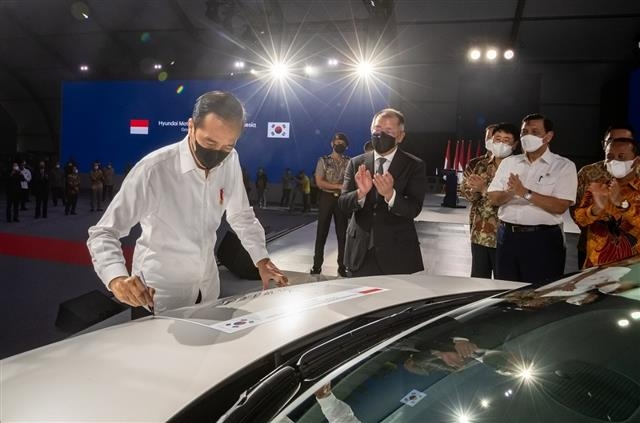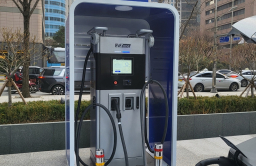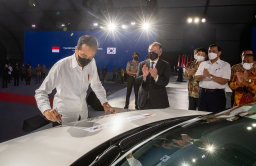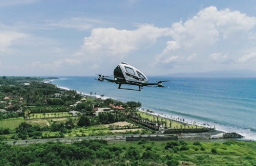-
KOSPI 2577.27 -2.21 -0.09%
-
KOSDAQ 722.52 -7.07 -0.97%
-
KOSPI200 341.49 +0.02 +0.01%
-
USD/KRW 1396 -2.00 0.14%
S.Korea must use Indonesia, Thailand as EV output-export bases: report
Automobiles
S.Korea must use Indonesia, Thailand as EV output-export bases: report
Korea Automotive Technology Institute unveils a study discussing trends and implications of the Southeast Asian car market
By
Dec 19, 2022 (Gmt+09:00)
1
Min read
News+

The Korea Automotive Technology Institute says the domestic auto industry should more proactively use Asean-region members like Indonesia and Thailand as production and export bases for electric vehicles (EV).
The institute made the announcement Monday while releasing the results of its study, "Trends and Implications of the Asean Automotive Market."
With the Asean Trade in Goods Agreement of 2018 and the Asean Mutual Recognition Arrangement on Type Approval for Automotive Products (APMRA) of 2022 now in effect, the report said auto imports and exports within Southeast Asia are expected to become smoother.
With South Korea, the European Union and Japan among its members, APMRA is expected to accelerate trade by simplifying the approvals process of certain auto equipment trading among Asean members.
Japan has long dominated the Asean market, but China is aggressively advancing there amid a rapid transition to EVs in Southeast Asia.
The report said Indonesia and Thailand are the two Asean nations showing the greatest interest in EV development.
Indonesia boasts abundant reserves of key minerals required to make EV batteries, such as nickel, in addition to a huge domestic market.
Thailand is an auto output and export base whose key strength developed over the years is its network of parts suppliers, labor and supply chains.
With high potential as EV markets, both countries are promoting the development of their homegrown industries by adding domestic production requirements to their EV support policies.
In 2020, Indonesia banned the export of nickel ore and required that batteries be produced and processed domestically. Only EVs that meet parts localization requirements are exempted from a luxury tax of up to 15%.
Write to Hyung-Kyu Kim at khk@hankyung.com
More To Read
-
Nov 14, 2022 (Gmt+09:00)
-
 Electric vehiclesKorean EV charging startup to launch business in Indonesia
Electric vehiclesKorean EV charging startup to launch business in IndonesiaOct 26, 2022 (Gmt+09:00)
-
 Business & PoliticsIndonesian president to visit Hyundai Motor during Korea visit
Business & PoliticsIndonesian president to visit Hyundai Motor during Korea visitJul 26, 2022 (Gmt+09:00)



